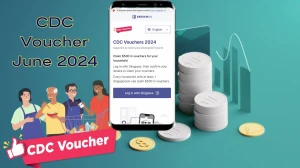
Is the U.S. Economy Heading for a Recession?
The U.S. economy is not heading for a recession in 2023, it's growing steadily, driven by strong consumer spending, despite challenges like high interest rates and inflation, the economy showed 2.2% and 2.1% growth in the first two quarters.
Updated Oct 11, 2023
Is the U.S. Economy Heading for a Recession?
No, the U.S. economy isn't heading for a recession. It's actually growing at a slow but steady pace in 2023, which is defying earlier predictions of a recession. In a surprising turn of events, the U.S. economy stands resilient against the looming threat of recession in 2023. Contrary to earlier predictions, it continues to chart a path of gradual growth, thanks in no small part to the driving force of consumer spending.
- Consumer Spending Drives Growth: One key reason for this growth is that people are spending money, and consumer spending plays a big role in keeping the economy on a positive path.
- Challenges with High Interest Rates and Inflation: Despite some challenges like high interest rates and inflation, the economy is still moving forward. In the first quarter of 2023, it grew by 2.2%, and in the second quarter, it increased by 2.1%.
- Steady, Moderate Growth: The economy seems to have settled into a moderate growth pattern this year. It's slower than the rapid 5.8% growth we saw in 2021, but it's much better than the 1.9% growth in 2022.
- Consumer Strength Matters: The strength of consumers, in particular, is helping keep the economy on a positive track. People have jobs and are spending money, and that's making a big difference. The job market is strong, with low unemployment and many job opportunities.
So, for now, the worries about a recession seem to be easing, and the U.S. economy is chugging along, thanks in large part to the strength of consumers and the job market. We will see the dynamics of inflation, the role of consumer spending, the consequences of rising interest rates, and the need for prudent investment considerations in the evolving economic landscape.
The Resurgence of Inflation
Inflation, which is the rise in the prices of goods and services, made a big comeback. It reached a really high point in June 2022, where prices were more than 9% higher than the year before (based on something called the Consumer Price Index or CPI). This was the highest level in over 40 years, and it was way more than what the Federal Reserve (or Fed) wanted.
But, things have calmed down a bit since then. By August 2023, inflation had slowed to 3.7% over the year. The Fed usually wants the inflation rate to be around 2% on average. So, inflation made a strong comeback, causing prices to go up a lot, but it has slowed down a bit now, and we hope it stays closer to what the Fed wants.
Consumer Spending's Role in Corporate Earnings and Stock Market Growth
The Fed, which is like the central bank of the United States, decided to do some important things in response to the rising inflation. One of the things they did was raise the main interest rate they control, which is called the fed funds rate. This was the first time they did it since 2018.
By July 2023, they had increased the target fed funds rate to a range of 5.25% to 5.50%, which is a big jump from nearly zero before they started raising rates. This is the highest the fed funds rate has been since 2001. The Fed also stopped buying bonds and started selling some of the bonds they had. They did all this to try to slow down the economy a bit and reduce the pressure from rising prices (inflation).
Navigating the complex landscape of Economy becomes easier with MarketsHost, your go-to destination for financial guidance and services.
Rising Interest Rates
When the Fed started raising interest rates, it had some effects on different parts of the economy. Things like certificates of deposit, money market funds, and bonds started to pay more interest to investors. Mortgage rates and the cost of borrowing money, like credit card debt and auto loans, also went up.
One area that got hit the most was the housing market. More expensive mortgage rates made it a bit tough for people to buy houses, and the housing market slowed down for a while. But recently, it seems to have steadied, even though home prices have gone up after a short dip. Mortgage rates also went above 7%, making it a bit harder for people to afford homes.
Another thing to watch out for is whether people and businesses slow down their borrowing because the higher interest rates make loans more expensive. Despite the Fed making it harder to borrow money by raising rates, jobs are still being created, and wages are going up by more than 4% a year. This helps people keep up their spending, and the Fed is mainly keeping an eye on how wages affect the overall inflation rate.
Maintaining Economic Momentum
One big question is whether the Fed's decision to raise interest rates a lot will help control rising prices and keep the economy from crashing into a recession. It's like steering a car carefully to avoid both speeding up too much and coming to a sudden stop.
Experts think that the economy might not fall into a recession, but they expect it to keep growing slowly for a while. This might look like what they call a "growth recession," where the economy moves slowly, but it doesn't hurt the job market much. Some early data suggests that the economy might have picked up some speed in the months from July to September, but we won't know for sure until the official government data comes out in late October.
Even so, this good news might mean that the Fed won't feel as much pressure to raise interest rates even more. A bit of a slowdown in job growth has made investors worry less about more interest rate hikes. However, the folks at the Federal Open Market Committee, the ones who decide on interest rates, said in September that they're open to the idea of raising rates at least one more time in 2023. They don't plan to lower interest rates anytime soon, though.
Investment Considerations in Light of Current Economic Trends
If you're thinking about investing your money, there are a few important things to watch. One key factor is how well companies are doing – their earnings. In the first and second quarters of this year, earnings didn't grow as fast as before, but they still did better than expected. But, there are some things to keep an eye on. Will the job market slow down, and will people earn less money, causing them to spend less? Is inflation going to be a problem again, and will the Fed raise interest rates more than we expect?
These questions are important because they can affect whether the economy keeps growing or starts to slow down. The stock market did well in the first seven months of 2023, especially for technology companies. But after that, it didn't do as well, and the overall increase for the year was around 11% by the end of September.
Experts think the stock market might be a bit uncertain for a while, but if the economy gets stronger in the coming months, it could help other types of companies in the stock market do better. If you're investing, it might be a good idea to talk to a professional who can look at your current investments and see if they match your long-term goals. This is especially important because the market and the economy are a bit uncertain right now
Is the U.S. Economy Heading for a Recession - FAQs
1. Is the U.S. Economy currently in a recession?
No, as of the latest available data, the U.S. economy is not in a recession.
2. What is the current state of consumer spending in the U.S.?
Consumer spending remains strong, supporting economic growth.
3. How are rising interest rates impacting the U.S. economy?
Rising interest rates are affecting various sectors, such as housing, but the economy is still growing.
4. What measures has the Federal Reserve taken to address inflation?
The Federal Reserve has raised interest rates to control inflation.
5. What is the outlook for the U.S. economy in the coming months?
The economic outlook is uncertain, with various factors like job market dynamics and inflation playing key roles.




